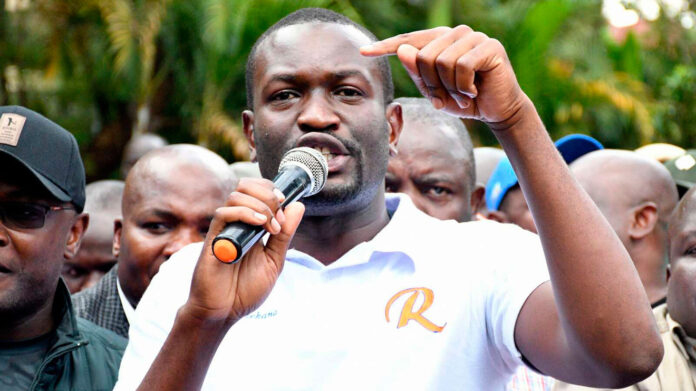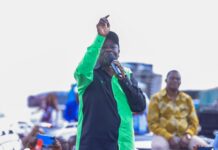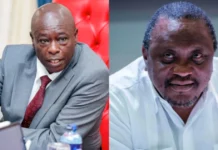The Orange Democratic Movement (ODM) has strongly criticized the government for allegedly mistreating Butere Girls High School students over their play Echoes of War, which was seen as critical of the current administration.
In a statement issued on Thursday, April 10, 2025, ODM Secretary General Senator Edwin Sifuna said the country has been watching “with disbelief” the events unfolding at the National Drama Festivals in Nakuru, where the school was reportedly blocked from performing its play.
“Of all the evidence we already have of the lack of focus of this regime, it has shot itself in the foot by harassing and attempting to silence the voices of young girls in school uniform,” Sifuna said.
Comparing the moment to the powerful South African film Sarafina!, which highlighted student resistance against apartheid, Sifuna said that student voices — because of their innocence and honesty — must be heard.
“Serious questions arise when a government is scared of children’s art, a mere expression of talent in a high school festival,” he added.
ODM condemned what it called the mistreatment of the students, journalists, and other festival participants and called on authorities to allow Butere Girls to perform like all other schools.
“We reiterate that the freedom of expression guaranteed by the constitution allows people of all ages to express themselves freely even if we do not particularly like what they have to say,” he said.
Chaos erupted in Nakuru earlier in the day after police fired teargas to disperse crowds gathered to support the school. The Butere Girls drama team arrived at the venue, Melvin Jones Academy, but declined to perform, instead singing the national anthem and quietly exiting the stage.
The play had previously been disqualified during the Western Region Drama Festival under unclear circumstances, but a High Court ruling later overturned that decision, reinstating the play and ordering its inclusion in the national program. Students who had already gone home for the April holidays were recalled for rehearsals.
However, on arrival in Nakuru, the team staged a silent protest, saying they would not perform without their director, Cleophas Malala, who had been detained at Eldama Ravine Police Station. His lawyer, Ken Echesa, confirmed that the students demanded his presence and boycotted the performance in protest.
Outside the venue, members of the public joined the students in chanting slogans such as “No Butere, no drama” and “Ruto must go,” before anti-riot police intervened and lobbed teargas to disperse the crowd. Some students sought refuge at nearby Menengai Secondary School while the school bus was later escorted out of Nakuru under police watch.
Politicians and civil society leaders have also voiced their concerns. KANU Chairman Gideon Moi criticized the arrest of Malala, saying it violated the students’ right to freedom of expression.
“Kenya prides itself on a robust Bill of Rights that guarantees freedom of expression, yet security agencies are being used to suppress a high school play,” Moi said.
He warned that suppressing artistic voices signals a government losing touch with the people, adding that instead of using intimidation to silence dissent, the state should focus on addressing the pressing economic issues facing Kenyans.
“The young girls of Butere are not enemies of the state but daughters of this nation. Rather than be punished for speaking the truth through art, they should be celebrated,” Moi said.
Democratic Action Party-Kenya (DAP-K) leader Eugene Wamalwa also led a group of lawyers to the school, demanding Malala’s release and condemning police actions that prevented journalists from accessing the venue. Only students and officials were allowed in.



















